Ramen restaurant in Saitama offers handshakes for 10 yen, and much more
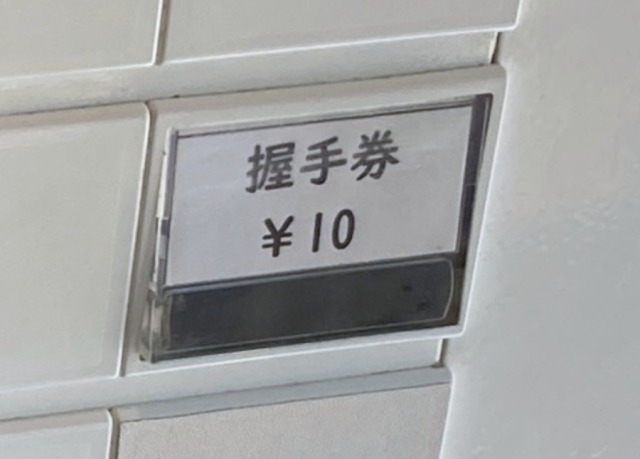
The ramen is so good, they’ll shake on it.
Although often given away for free in certain cultures, a handshake can sometimes be regarded as a commodity in Japan. However, not just anyone can charge a premium to let you put it there, and this business is often limited to idols or other celebrities.
This brings us to Jokigen Itadaki, a ramen shop that has been earning a reputation for offering “handshake tickets” alongside their noodles. We sent Mr. Sato there to learn more and see how much a handshake with the owner is going for in this economy.
Jokigen Itadaki is about a 10-minute walk from Shin-Sayama Station in Sayama, Saitama Prefecture. It’s on a corner of the busy Route 16 highway and probably most easily spotted by its signs touting “thick tori paitan ramen,” which is a ramen that uses a chicken broth.
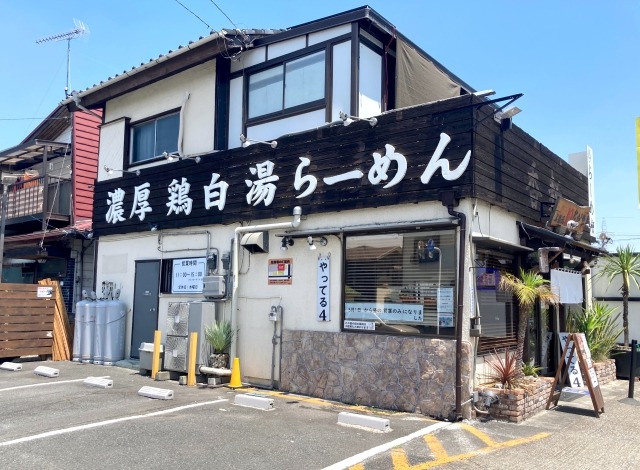
Another sign near the door gives a more detailed description of the ramen, and underneath it were instructions on where to line up to wait for a table if all the restaurant’s seats are taken, which suggested to Mr. Sato that this place can get quite busy at times.
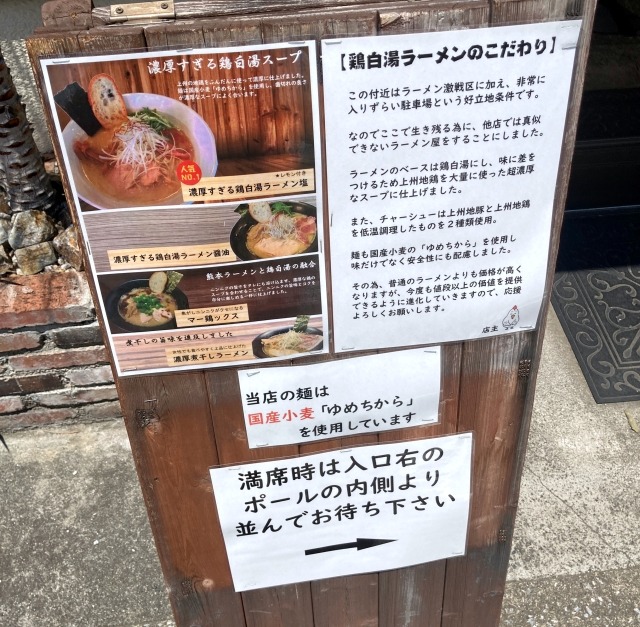
After entering the restaurant, Mr. Sato headed to the ticket machine. At the top were two types of tori paitan ramen and a cleverly named “Ma-tori-x” ramen, again with tori being the Japanese word for “bird” or, in this case, “chicken.”
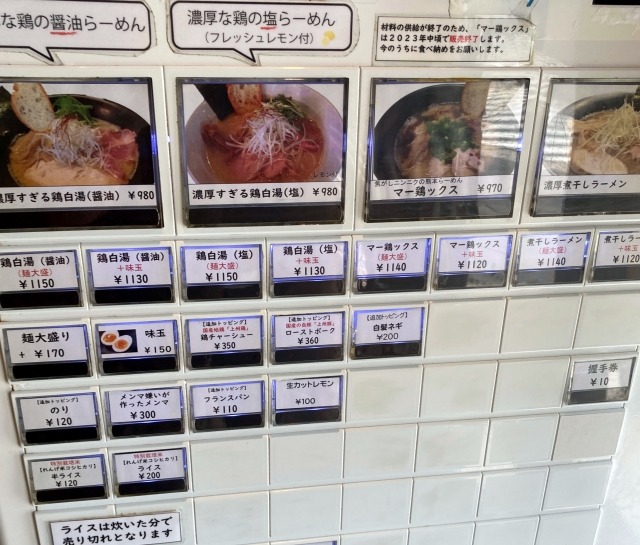
It all seemed like pretty standard stuff for a ramen shop, until our reporter suddenly found the “handshake ticket” button.
▼ “Handshake Ticket – 10 yen [US$0.07]”
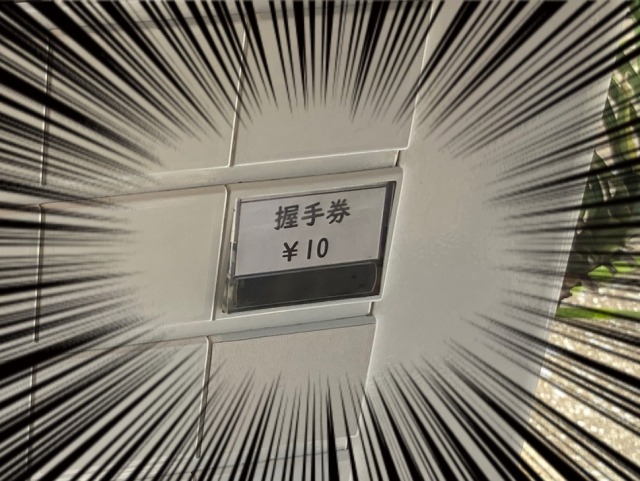
Mr. Sato bought one ticket for a soy sauce-broth thick tori paitan ramen (980 yen [US$7]) and one for a handshake, then took them to the counter. Upon seeing the tickets the owner asked how Mr. Sato heard about the handshake ticket. “Did you see it somewhere? On Instagram or something?”
Mr. Sato looked up at the wall, where photos of people who had bought handshakes in the past hung, and replied: “I saw it on Instagram and your website. Shake my hand, please!”
The owner, Mr. Kishioka, and Mr. Sato seemed like kindred spirits and even learned that they were both born in 1973. Mr. Kishioka also showed our reporter around some of the other many gags embedded in Jokigen Itadaki.
First, there was the change machine which looks somewhat normal at a quick first glance.
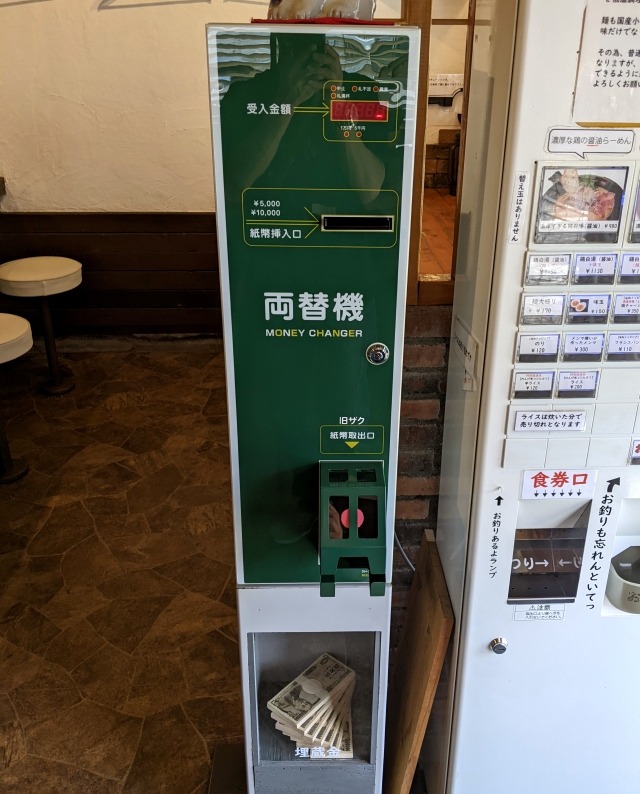
But upon closer inspection the slot where your money comes out looks like the head of a Zaku I unit from Mobile Suit Gundam and is even labeled “Kyu Zaku.”
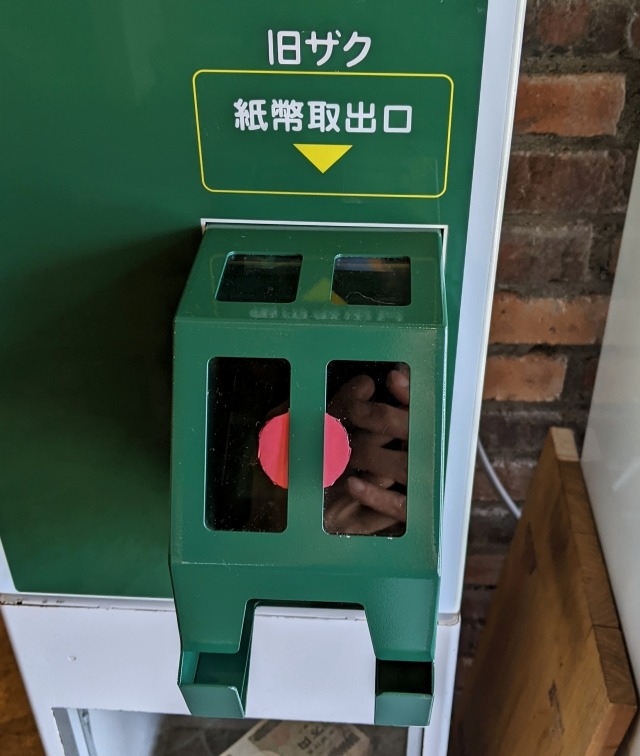
At the bottom is a big stack of cash with “buried treasure” written on the window. It may look conspicuous in the photo like this, but Mr. Kishioka says that most people don’t notice it. He also changes what’s written on the window from time to time to keep people on their toes.
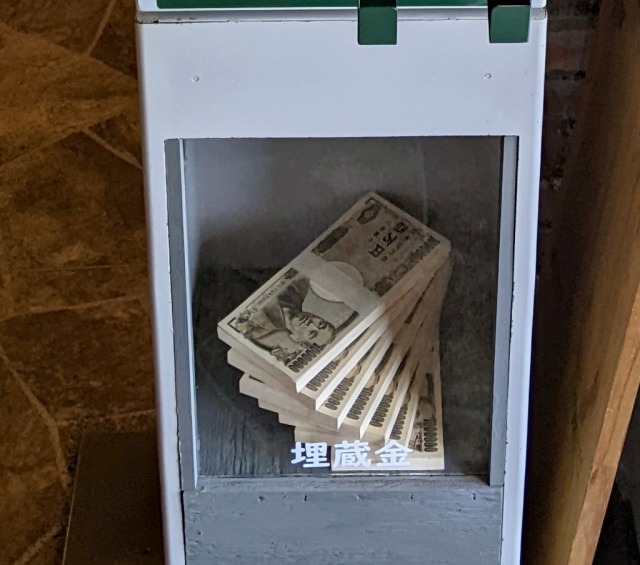
And in one corner there’s a button mounted on the wall that resembles the kind of button you’d find on a bus to signal that you want to get off. Above it is a sign that says: “Push the button and a bear will appear.”
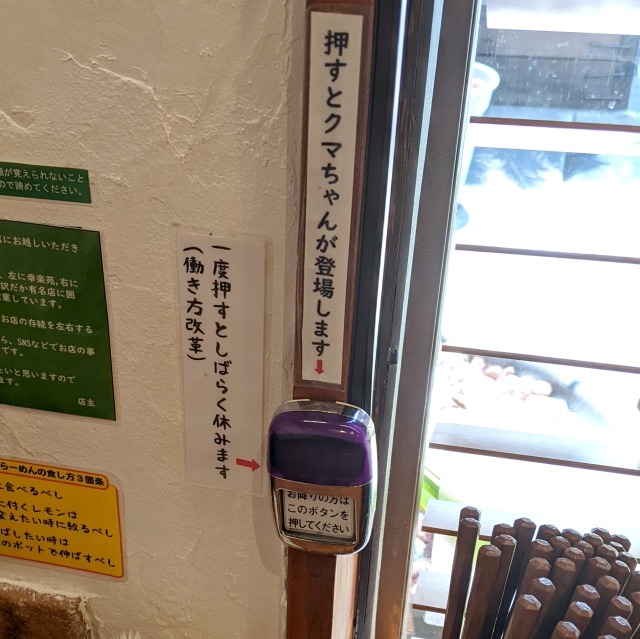
Mr. Sato wondered where such a bear would come from and glanced up to see a suspicious looking box near the ceiling.
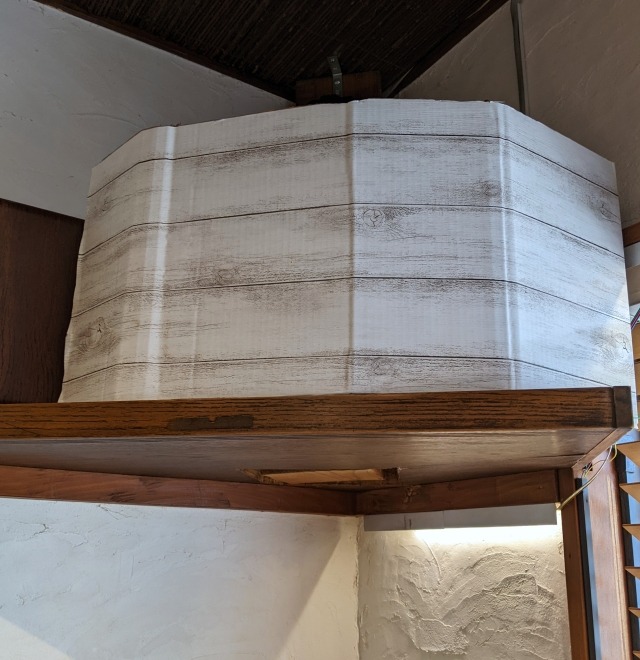
After pushing the button a light came from the bottom of the box and music started playing as a bear gently lowered down on a platform. After his appearance was made, he gently floated back up, accompanied by music.
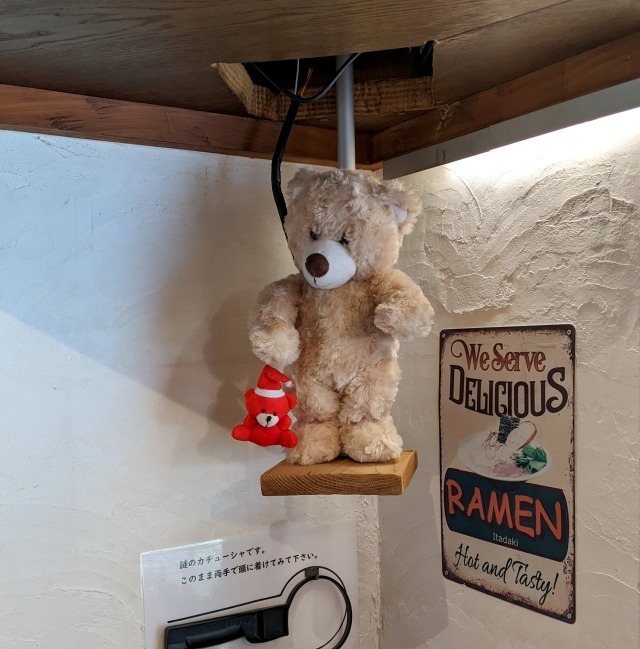
All of these gimmicks were made by Mr. Kishioka himself and that bear took him about a year to design and install. The owner credits his tenacious personality to putting these things together, saying: “You can do anything if you don’t give up.”
More jokes could be found outside as well, such as this sign warning would-be criminals that a “Security Gamera has been installed!”
▼ “Suspicious people will be taken away by Gamera.”
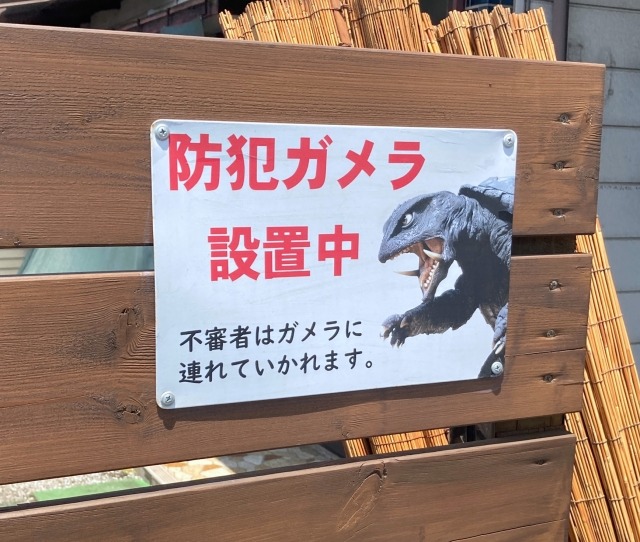
Near that was the “Sumo Oh Area” in which “oh” is the Japanese word for “king.” That makes this the “Sumo King Area.”
▼ Say it fast and out loud if you still don’t get it.
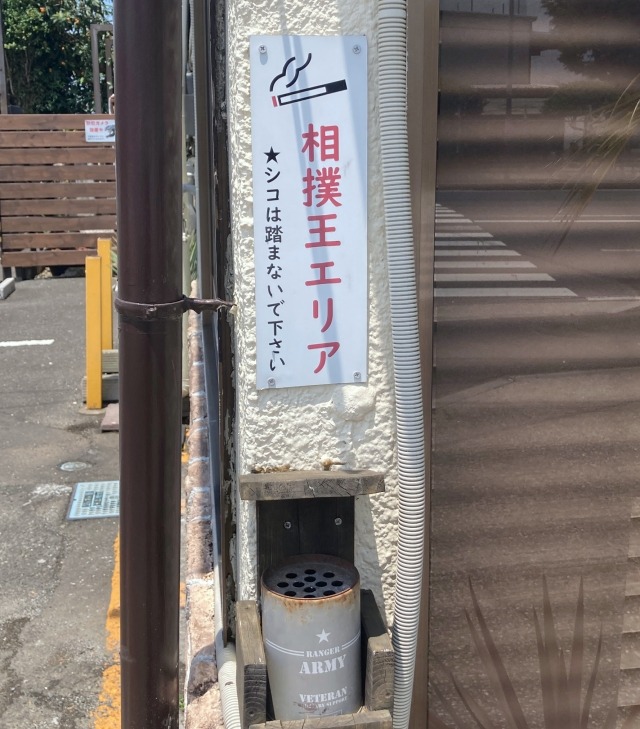
By this point, it’s probably well established that Mr. Kishioka puts a lot of thought into everything and the ramen here is no different. As the name mentioned, this was a very thick chicken broth, using the famous Joshu-jidori chicken of Gunma Prefecture.
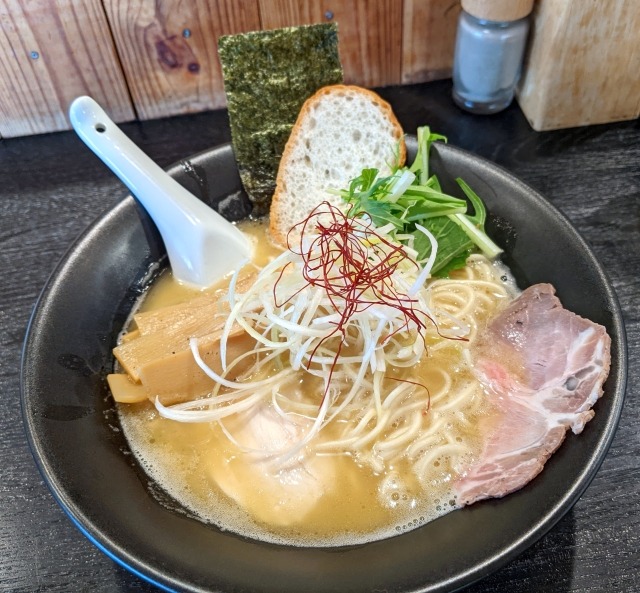
The flavor was very deep and strong, but at the same time not overbearing and gave a fascinating umami depth with a refreshing aftertaste.
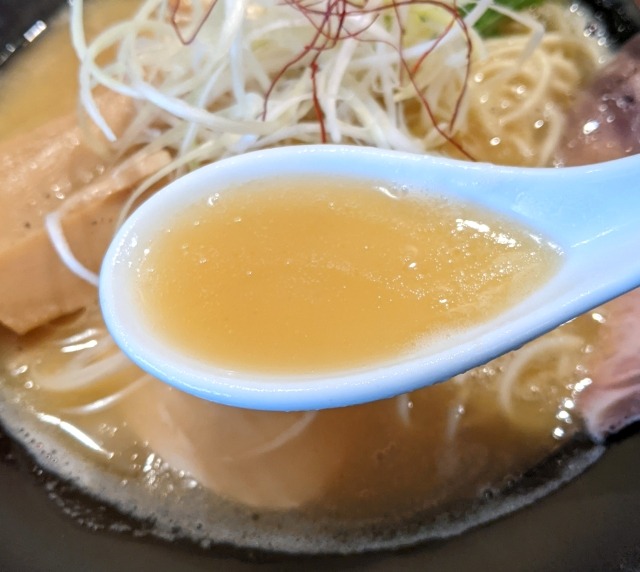
There were also some recommended eating guidelines on the table, which explained that it’s more delicious if the bread is eaten first. Mr. Sato did so, and couldn’t agree more. The thickness of the soup went perfectly well with the bread, and he seriously considered adding a second order of bread for 110 yen ($0.80) more.
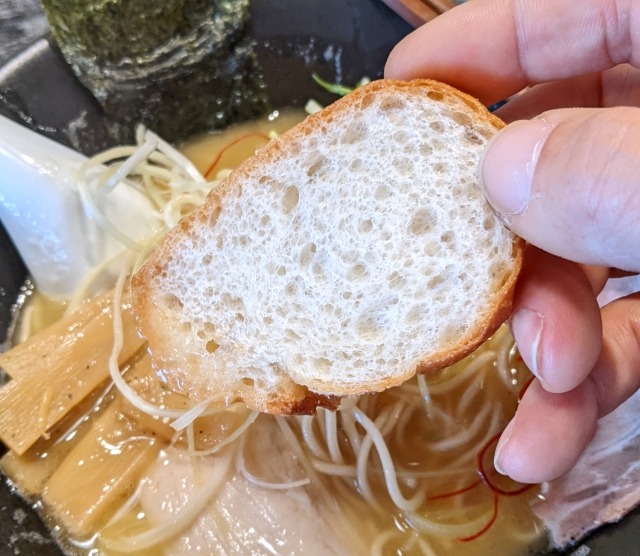
A lot of thought was also put into the noodles, which are made from Yumechikara flour. Although this kind of flour is usually used in bread-making, it fit perfectly well in this dish to provide a firm texture that held up in the thick broth.
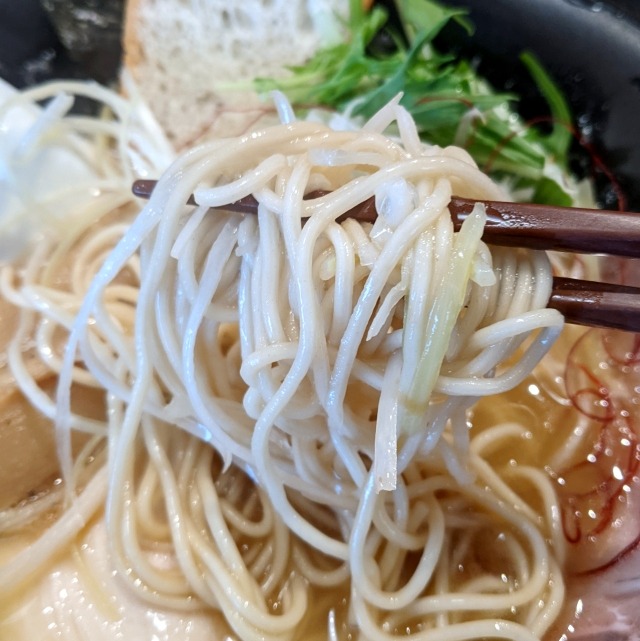
As Mr. Sato ate, Mr. Kishioka explained that the restaurant has been in business for 21 years and switched from tonkotsu to tori paitan ramen in 2016. His ramen teacher was an inspiration to him and said that you can’t stay in business with great ramen alone. So, he devoted himself to making a restaurant where he, his staff, and the customers can all have fun.
Mr. Sato felt Mr. Kishioka really accomplished that with Jokigen Itadaki and after finishing up his meal he settled up his handshake with the owner.
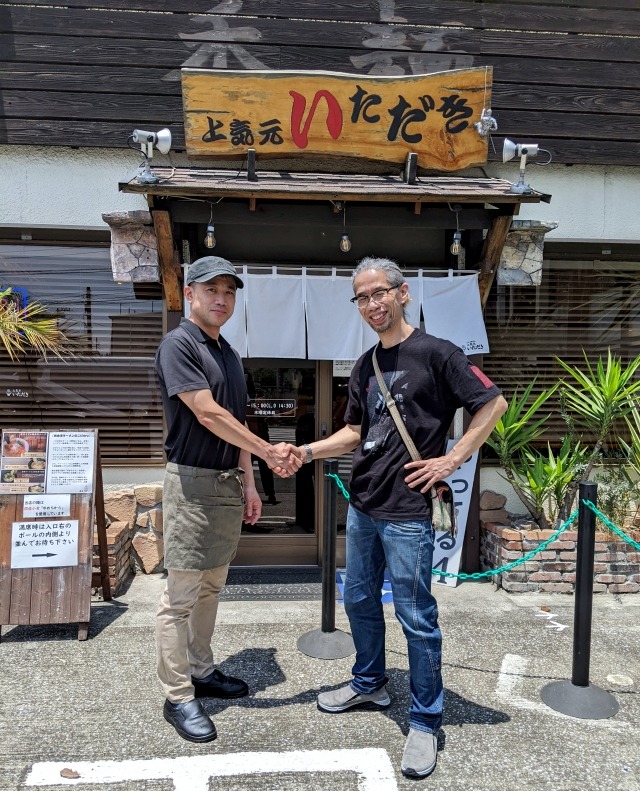
Just as he left, Mr. Sato realized that he forgot to get a second order of bread because he was too absorbed in the ramen and conversation. He also thought a side order or rice would go remarkably well with that kind of ramen.
He’ll definitely try it next time though, as this is a place he’s sure to come back to.
Restaurant information
Jokigen Itadaki / 上気元いただき
Address: Saitama-ken, Sayama-shi, Shimookutomi 610
埼玉県狭山市下奥富610
Open 11:00 a.m.-3:00 p.m.
Closed Thursdays
Website
Photos ©SoraNews24
● Want to hear about SoraNews24’s latest articles as soon as they’re published? Follow us on Facebook and Twitter!
Credit:

0 comments: